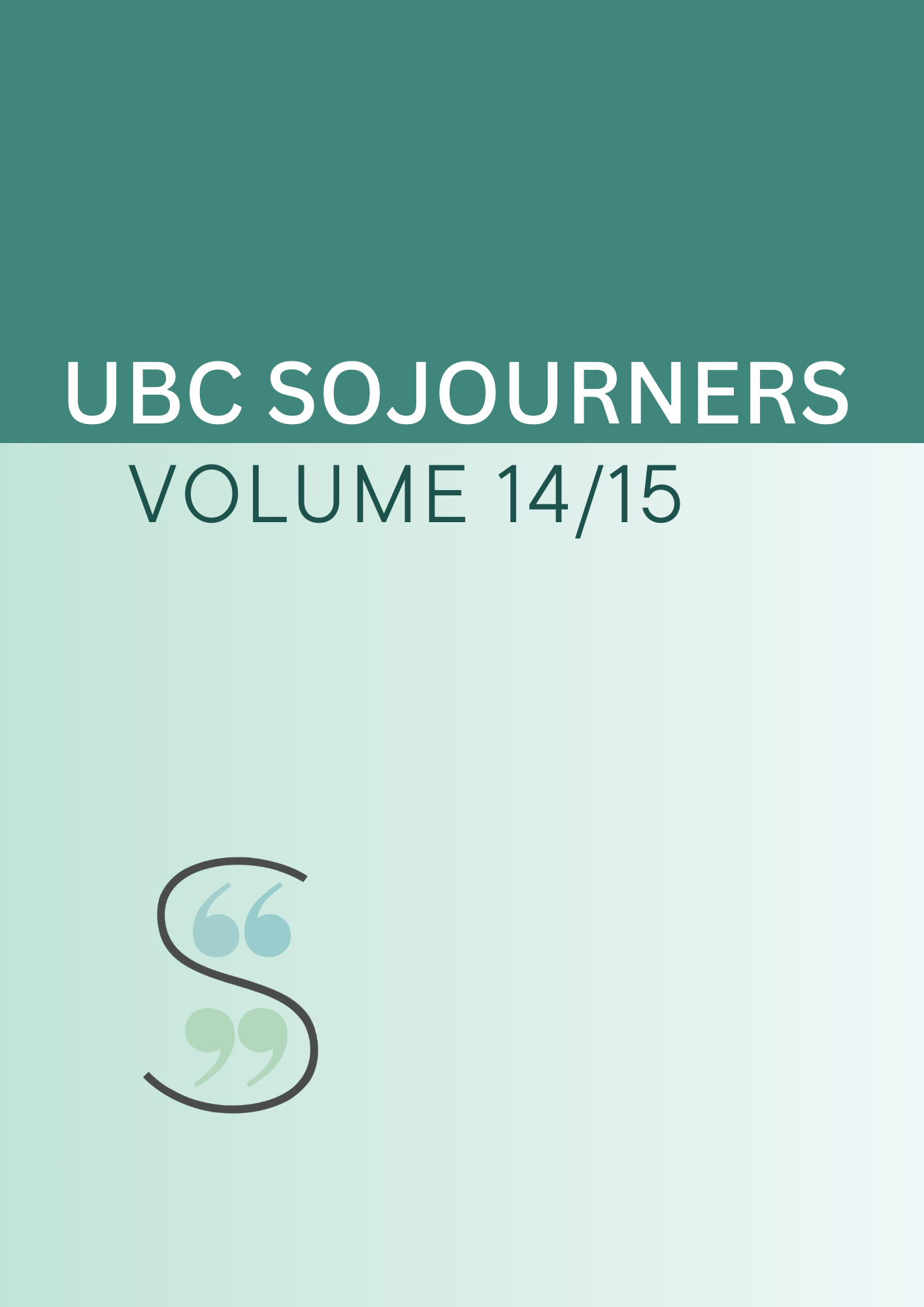Our Home on Native Land: An Introspection into Delgamuukw v. British Columbia and its Aftermath
Abstract
This paper critiques the dominant narrative of Canada as a fair and equitable nation and investigates how this narrative negatively affects Indigenous peoples in Canada. This research is important because it addresses the issue of Canada’s liberalist definition of reconciliation. This paper demonstrates how the only way to move forward on reconciliation will be for Canada as a culture and a state to let go of this liberalist narrative and redefine reconciliation through continuous consultation with Indigenous peoples across Canada. This is done through a case study of the Indigenous land claim case Delgamuukw v. Province of British Columbia and its long term outcomes as demonstrated by movements occurring in Wet’suwet’en Nation territory today. In this paper, a different definition of reconciliation is put forth and is informed by the responses to the liberalist definition of reconciliation and the falsehood of the Canadian narrative communicated by Indigenous peoples — as seen by movements in Wet’suwet’en Nation. Lastly, several baseline suggestions are made to meet this more integrative model of reconciliation by requiring the Canadian government to make an entire systemic overhaul at all levels. In breaking down this discourse through the use of Delgamuukw v. British Columbia as a case study, this paper demonstrates how this definition of reconciliation and discourse is, in fact, harmful to Indigenous rights and the obtainment of reconciliation. This paper also presents a theoretical framework for how Canada, as a state, can take steps towards reconciliation.This framework is rooted in holding Canada accountable to their word and actions by integrating Indigenous legal orders with international law.
Downloads
Published
Issue
Section
License
Copyright (c) 2023 Sojourners Undergraduate Journal of Sociology

This work is licensed under a Creative Commons Attribution-NonCommercial 4.0 International License.

